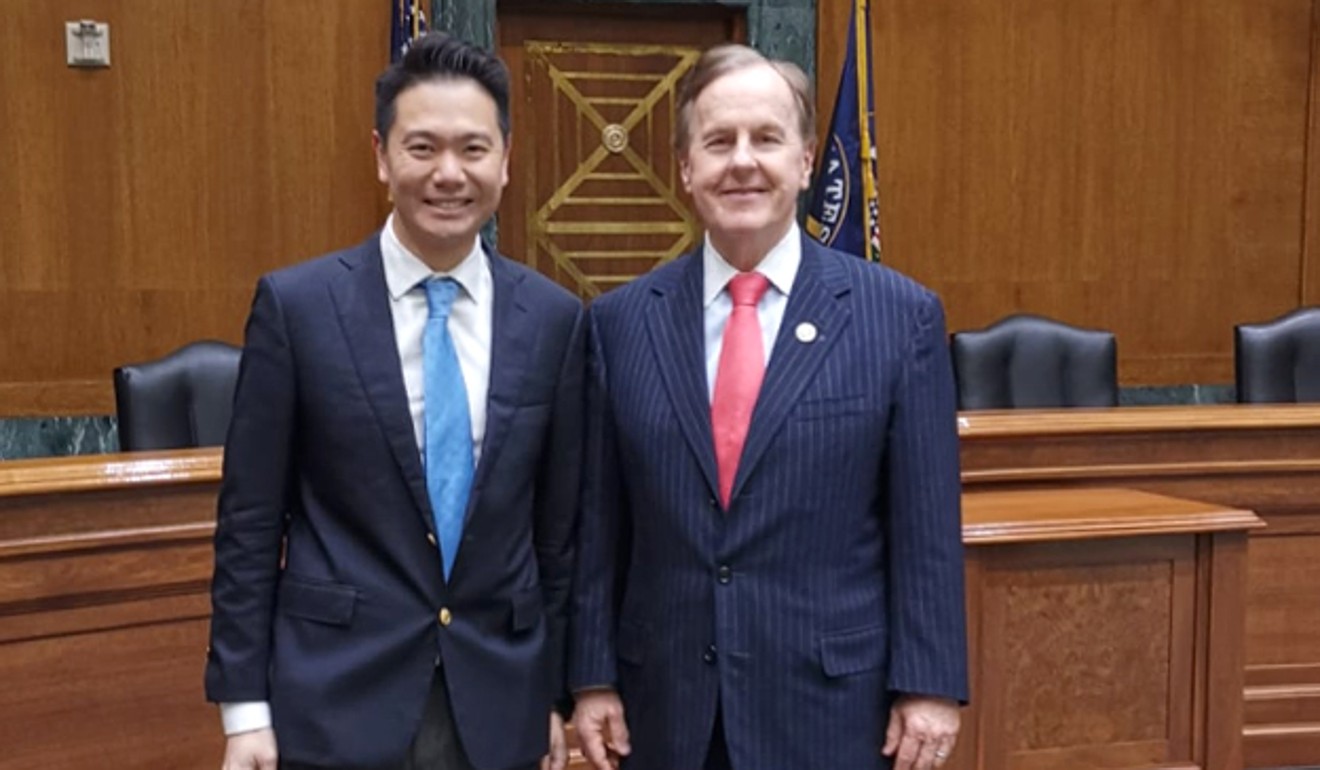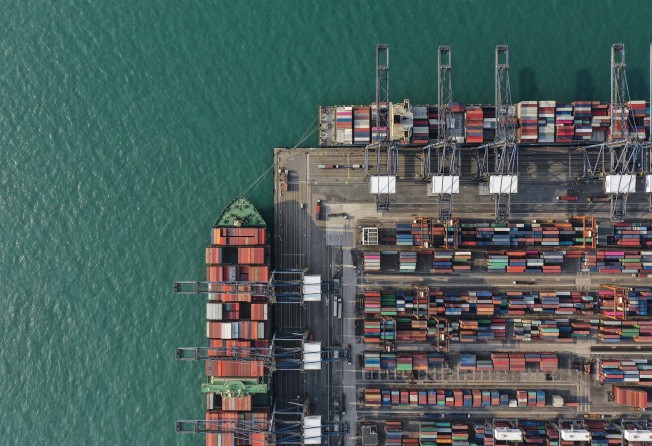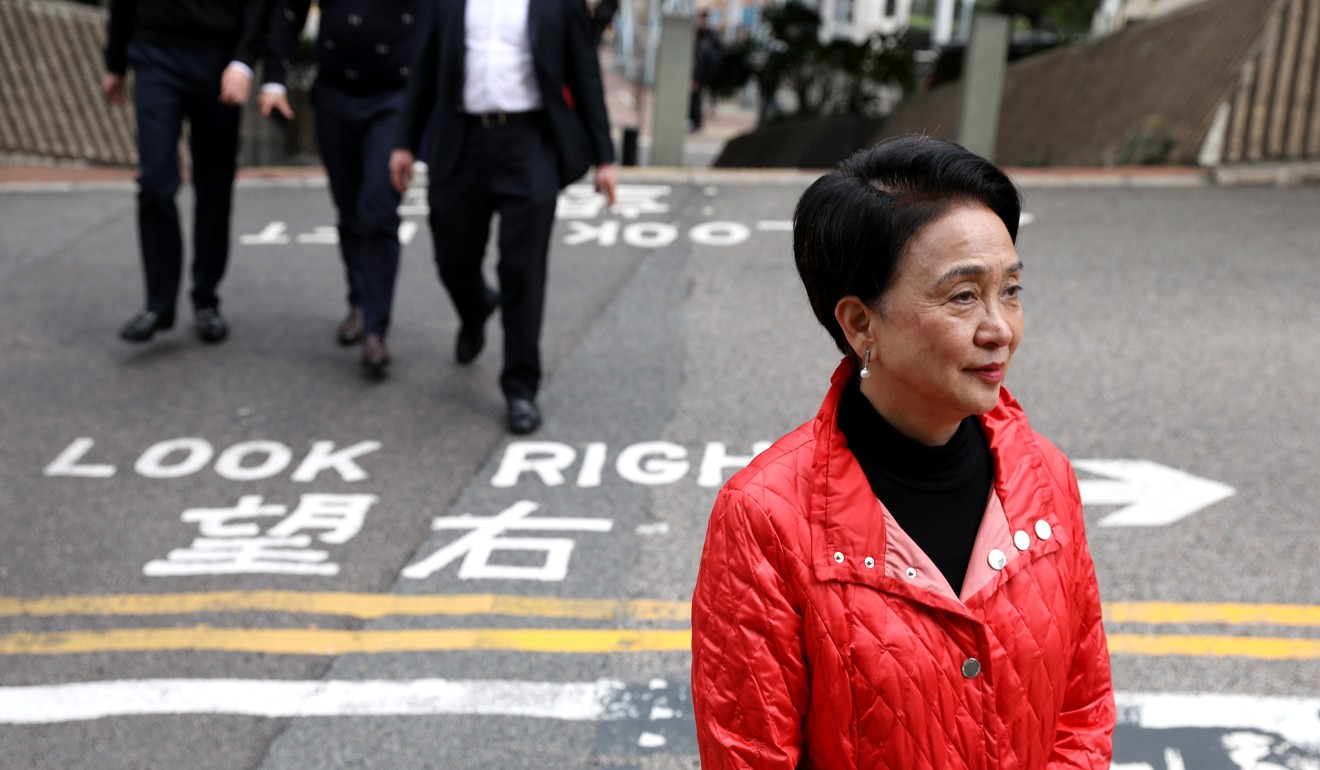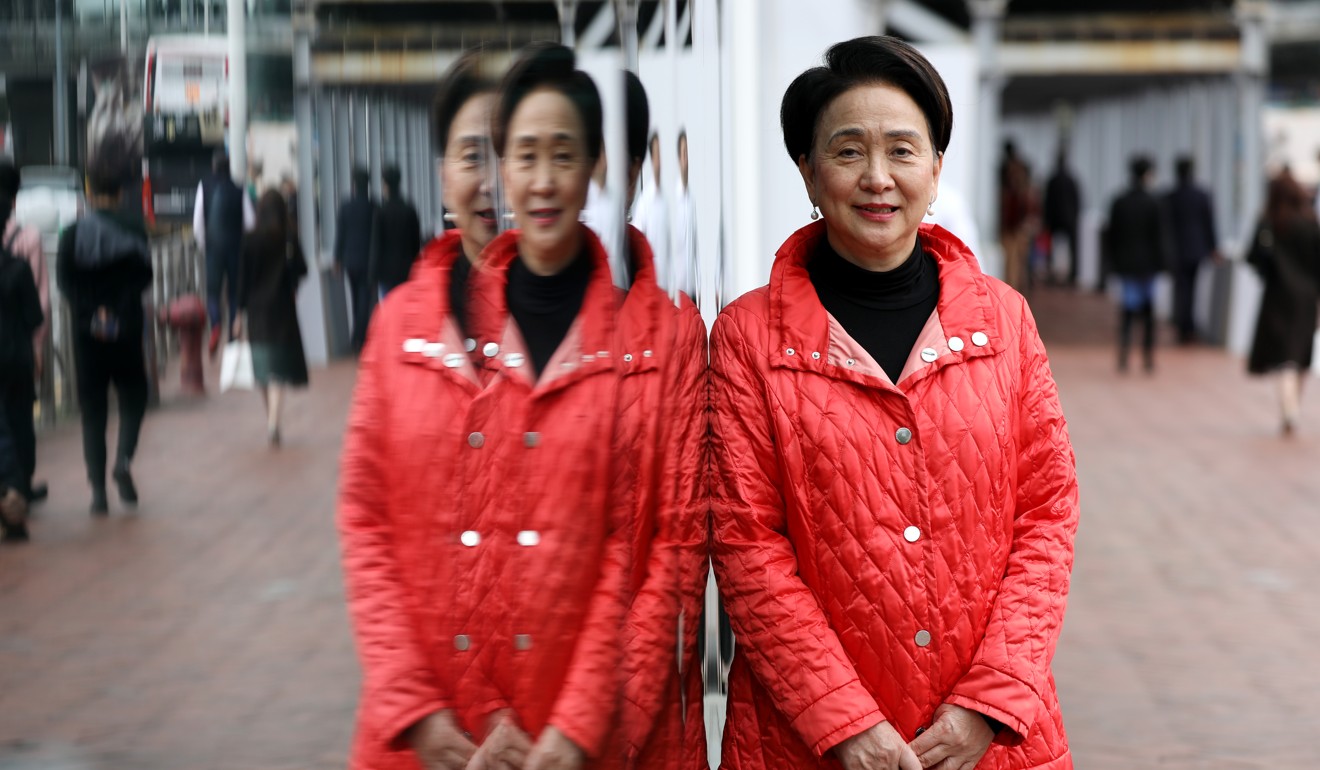
Politicians from both sides of Hong Kong’s divide reaching out to international contacts as US-China trade war threatens to hit city
- Pro-Beijing parties have followed pan-democrats in cultivating relations overseas
- Both sides concerned after US advisory commission in Washington suggested reviewing separate trade status Hong Kong enjoys from China

Hong Kong political parties from across the spectrum have stepped up interactions with the international community, as trade disputes between the United States and China threaten to affect the city’s free trade status.
The largest pro-Beijing party, the Democratic Alliance for the Betterment and Progress of Hong Kong (DAB), has tasked vice-chairman Holden Chow Ho-ding with strengthening ties with foreign politicians, diplomats and businesspeople, while the Democratic Party has set up a high-powered committee to bolster overseas connections.
Previously, the pro-Beijing camp was more circumspect about going overseas to talk about developments in the city, while their pro-democracy rivals were more active to the point of being accused by pro-Beijing media of bad -mouthing Hong Kong abroad.
DAB lawmaker Chow went on a rare trip to the US in December after being invited to Washington by Republican congressman Robert Pittenger to attend a forum on money laundering attended by officials and legislators from 80 countries and economies.
Chow stayed behind in the American capital after the event and met US State Department officials to discuss Hong Kong political and trade issues.

His trip came in the wake of a report published in November by the US-China Economic and Security Review Commission (USCC), which advises the US Congress.
In that report, it had recommended reviewing the existing arrangement which treats Hong Kong and mainland China as separate customs areas in the export of technology with civilian and military applications.
The report also warned Beijing’s apparent encroachment on the city’s political system could diminish Hong Kong’s standing as a global business hub.
Chow said the document sparked public concern, given the significance of the city’s special status for its economy and its role in the international community.
“As a lawmaker, of course, I want to clarify any misunderstandings,” Chow said, adding that he felt obliged to take every opportunity to speak up in the West, especially after the report.
He said the Americans he met expressed concern about the disqualification of opposition lawmakers from the Legislative Council, the ban on the Hong Kong National Party and the expulsion of British journalist Victor Mallet.
“I explained the incidents to them and assured them that all had been done according to law,” Chow said. “It doesn’t matter if they agreed or not – at least they were willing to listen to my point of view.”
As a lawmaker, of course, I want to clarify any misunderstandings
Without naming names or specific occasions, he referred to rival politicians and said: “The opposition have often flown around and shared their version of Hong Kong’s situation, which I would say distorts the facts.”
Foreigners interested in Hong Kong affairs deserved to receive more than one-sided views, he said, adding: “So why don’t we go out to make sure our voices are heard?”
Chow said he was building up contacts with European and American politicians and hoping to arrange meetings. “If there is the opportunity and the timing is right, I would not rule out taking the initiative to go abroad and tell people about Hong Kong,” he said, adding he was keen to tell people about the city’s financial services and its trade and political situations.
Among opposition politicians, veterans such as Democratic Party founding chairman Martin Lee Chu-ming and former chairwoman Emily Lau Wai-hing have long-established ties with foreign politicians and diplomats.
Since co-founding the Demosisto party in 2016, Joshua Wong Chi-fung and Nathan Law Kwun-chung, student leaders of the 2014 Occupy protests, have engaged the international community, and are frequent and popular speakers overseas.
Chow said that in the past pro-Beijing lawmakers met diplomats regularly at sessions arranged by the Legislative Council’s Parliamentary Liaison Subcommittee.
He conceded that, unlike the pan-democrats, the Beijing loyalists rarely felt the need to go abroad and tell people in foreign countries about Hong Kong. But this had begun to change, given the international community’s increasing concern over the city’s political conflicts in recent years.
Chow said he would be glad to speak up for Hong Kong in future if invited.
“Under the ‘one country, two systems’ principle, the importance of Hong Kong lies with our connection with the international community,” he said.

From the pro-democracy camp, the Civic Party’s Dennis Kwok and the Democratic Party’s James To Kun-sun were in Washington around the same time as Chow.
Kwok met members of the USCC and politicians from both the Republican and Democratic parties. He said he tried to convince them that it would not benefit anyone to change the US-Hong Kong Policy Act, which treats Hong Kong as a separate trading entity from mainland China.
The act took effect after Hong Kong’s handover from Britain to China in 1997. The tariffs the US has slapped on mainland China in the current trade war do not apply to Hong Kong.
After the USCC report last November, Hong Kong’s Democratic Party set up an International Affairs Committee, led by ex-legislators Lau and Sin Chung-kai.
Lau, who chairs the committee, said its objective was to be more focused on strengthening interaction with foreign diplomats, politicians and businesspeople, and clarify the party’s position on international issues such as trade and US-China relations.
For a start, her committee would draft a paper setting out the party’s position on key issues.
As for allegations the Democrats had been denigrating the city to outsiders, Lau insisted their mission was to be honest about Hong Kong.

“We are Hong Kong people,” she said. “We would not talk down Hong Kong, but we would not shy away from talking about the problems and challenges it faces.
“I tell people the way I see a problem. If, by doing so, I upset some powers-that-be in Beijing or in the Hong Kong government, so be it.”
Lau pointed out she disagreed with Hong Kong activists who asked foreign governments to impose sanctions on the city over political incidents.
But she also felt that, until mainland China becomes fully democratic, the US-Hong Kong Policy Act would remain crucial to the city and its economy.
“The one country, two systems principle is under tremendous stress … but we would not encourage the Americans, saying, ‘Oh, because that’s the case, you take away the separate customs territory treatment’,” Lau said.
“We’ll say we need that, because we are separate from [mainland] China. But we will also try to tell the central government and the city government not to undermine one country, two systems.”
Lau said foreign diplomats are mainly business-minded people concerned about the interests of their countries in the city, and when they seek views on the city it should not be regarded as external meddling in Hong Kong’s affairs.
“They know about Hong Kong. Many have lived here or worked here, and they like Hong Kong,” she said. “So I think they welcome information about developments in Hong Kong.”